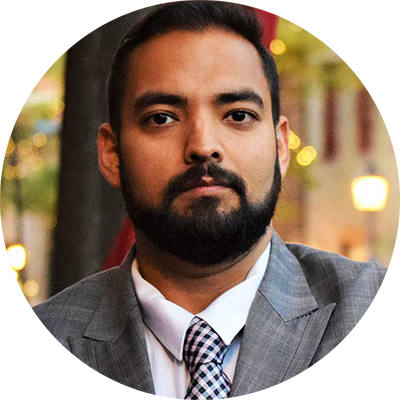As a musician, protecting your original work is crucial. Learn how to copyright a song with this guide and safeguard your music today!
If you’re a recording artist, songwriter, sound engineer, or composer, you know how important it is to protect your original work. Music copyright can help ensure you have legal ownership and control over your musical work or sound recordings. In this guide, we’ll walk you through copyrighting your song and protecting your exclusive rights.
Basics of Copyright Law For Musicians
Copyright protection exists for any original work of authorship fixed in a tangible form. Trademark protection extends to brand names, logos, or anything associated with the brand that is a source identifier. In comparison, copyright protection extends to creative and original works, which include original music.
If you want to learn more about the difference between trademarks and copyrights, please go here.
Create a Record of Your Song
As a musician, once you have fixed your song, lyrics, or musical notes in either a physical or digital format, your work is safeguarded by U.S. copyright law. An unregistered original work has the poor man’s copyright. But copyright registration for music copyright has benefits when it comes to enforcement of your rights in federal court, including access to statutory damages, legal fees, and other damages.
Copyright Registration | United States Copyright Office (USCO)
Before registering your song at USCO, you must create a tangible record. This can be in the form of sheet music, a recording, or even just lyrics written down on paper. When you copyright your music, you will be afforded a bundle of rights that include the following:
- The right to reproduce the song (Vinyls, CDs, Mp3s)
- Prepare derivative musical works ( sampling, remixes, commercial use)
- The right to distribute the work (seller’s/distributor’s rights)
- The right to public performance (digital streaming/venue performance)
- The right to public display (publishing song lyrics, musical notes, etc.)
Written or recorded music can be protected as a single-song application, or multiple songs can be protected as part of a music catalog. The U.S. copyright office allows for a registration process where you can protect your original musical work or sound recordings. The work can be registered electronically or through this form with a small filing fee.
Two Categories of Copyright Protection for Songs
Musical Works
According to U.S. Copyright Office, it is the underlying composition, including the lyrics, and is often created by a songwriter or composer. This often includes the rhythm, harmony, melody, and notes associated with the song. This type of music copyright protects the performance of the work/ song.
Sound Recording
Recording artists and other copyright holders, including producers, can register an audio recording incorporating a sequence of sounds and/or words representing their original work. Under current copyright laws, a sound recording copyright owner does not have a public display right to public performance. These rights are only limited to the performance of a recording through digital audio transmission, such as online streaming. Therefore, an AM/FM radio does not need permission to play the song on their airwaves.
Consider Joining a Performing Rights Organization (PRO)
After registering your musical work or sound recording at the U.S. Copyright Office, you may also want to consider joining a performing rights organization (PRO) such as ASCAP, BMI, or the invitation-only SESAC. These organizations collect royalties (Mechanical royalties & others) on behalf of songwriters and publishers when their music is played on the radio, T.V., or in public venues. Joining a PRO ensures compensation for your rights to the public performance of your music.
Protect Your Copyrighted Song from Infringement
Copyright infringement is one of the biggest threats to original work. A combination of copyright registration, monitoring, and enforcement policies, with the assistance of an intellectual property lawyer, will prevent the unauthorized use or copying of your original sound. However, even with copyright protections in place, it’s still possible for others to use your music without permission.
Copyright owners have many tools at hand to enforce their musical copyright. Exclusive recording contracts, Performance contracts, Online Distribution Agreements, Licensing & Publishing contracts, Cease & Desist letters, DMCA takedowns, copyright claims board, and filing a copyright infringement lawsuit, to name a few.
Can you Copyright Song Titles?
No, copyright protection extends to original work that is minimally creative. Even short phrases usually don’t count minimally creative enough to deserve copyright protection. Although musical works are considered creative enough to deserve copyright protection, one must consider trademark protection when considering protecting a song’s name.
Trademark Rights in Songs
A musical work always has a name. Smells Like Teen Spirit, Blurred Lines, and Back in Black are all terms that immediately identify the source (or rights holder) of the musical work. Trademark protection extends to everything that can be considered a source identifier to a consumer. This is where a thoughtful I.P. protection strategy with the assistance of an intellectual property attorney can help.

Sahil Malhotra
Sahil Malhotra is an Intellectual Property Attorney, who founded Drishti (“vision”) law because of his vision in protecting dreams and ideas.
He provided individuals and small businesses with an opportunity to enhance their IP’s value by helping them register trademarks and successfully argue against office actions. In addition to his training and experience, he has been deeply involved in the multifaceted IP portfolio at UIC and continues to be associated with IP organizations and conferences.
To know more about Sahil Malhotra — Click Here
You may follow Sahil Malhotra on Facebook: Sahil Malhotra and on Instagram: @Sahil Malhotra

